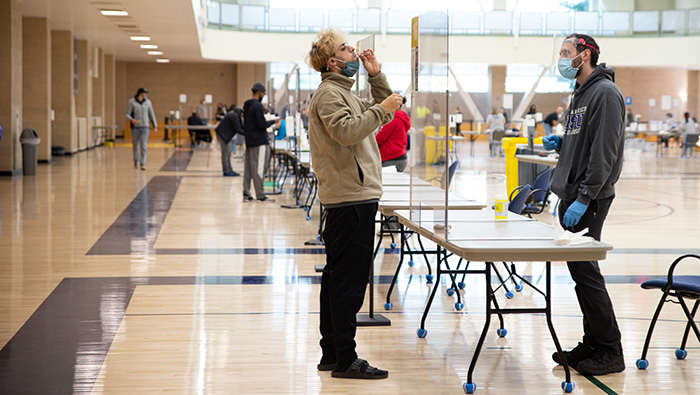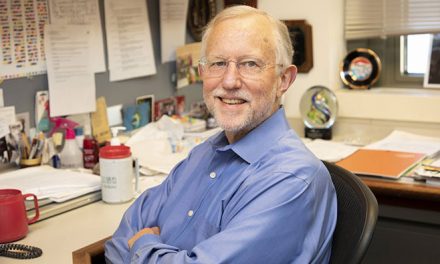
Positive Impact
Two newly published studies show the positive impact of Healthy Davis Together, the comprehensive pandemic response program established by the campus and city of Davis. The program, which provided access to regular COVID-19 testing, promoted vaccinations and other safety precautions, and supported local businesses, reduced test positivity rates, prevented illness and saved lives, the studies found.
The findings are reported in the American Journal of Public Health and in an independent evaluation conducted for Healthy Davis Together by Mathematica, a company focused on using data and analytics to improve public health and well-being.
“Healthy Davis Together undoubtedly had an impact on the public health of the Davis community during the pandemic,” said Professor Brad Pollock, director of Healthy Davis Together, chair of the Department of Public Health Sciences at UC Davis and lead author on the journal paper. “While peer-reviewed evidence shows that our program significantly impacted health behaviors such as testing and vaccination, and lowered test positivity, publicly available population data are not granular enough to directly measure effectiveness. Mathematica’s evaluation corroborates what we’ve directly experienced over the project’s 21-month period — that the program was successful at slowing the spread of COVID-19.”
The city of Davis and UC Davis launched Healthy Davis Together in September 2020 to prevent the spread of COVID-19, facilitate a return to normal activities and provide insights into what communities like Davis can do to protect residents in the event of future infectious disease outbreaks.
The program included free COVID-19 saliva-based testing, one-on-one health education from more than 200 undergraduate students working as Aggie Public Health Ambassadors, mobile testing and vaccination sites, augmented county contact tracing, public outreach to encourage healthy behaviors, investments in local businesses and workers, and wastewater testing.
Evaluators from Mathematica used an advanced analytic technique to estimate what would have happened in Davis without a comprehensive pandemic response strategy. Drawing on data from a wide range of sources, they compared changes in Davis with a matched set of comparison communities that resembled Davis on demographics, community features and preprogram outcomes.
According to Mathematica researchers, in the first 16 months the program’s efforts helped prevent 4,144 cases of COVID-19, reducing case counts by 60%, avoiding 275 COVID-19 related hospitalizations and 35 COVID-19 related deaths.









